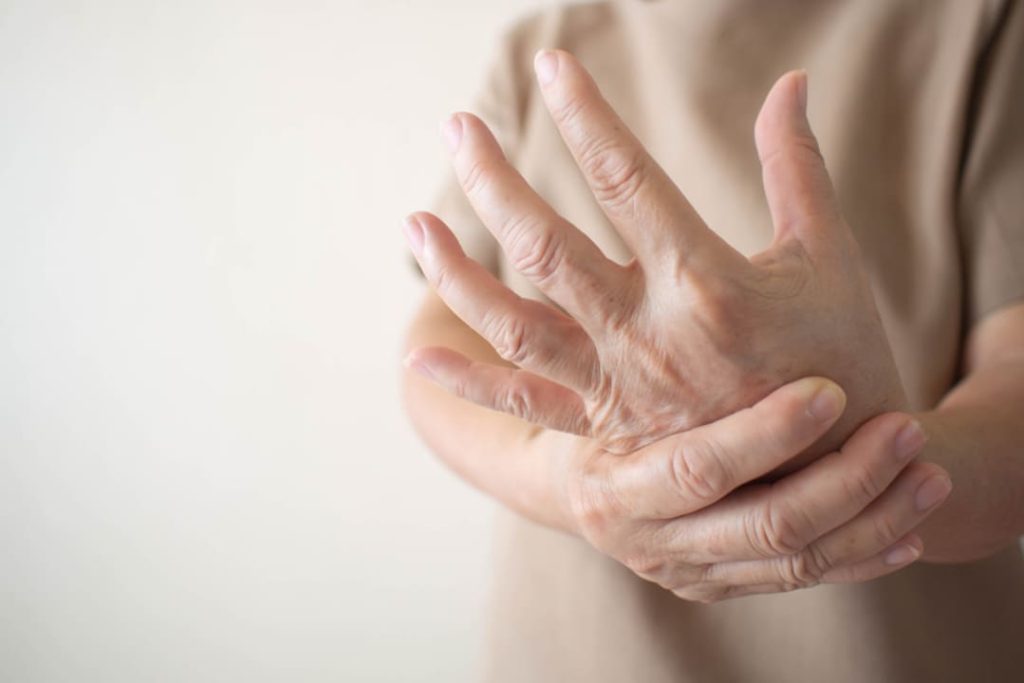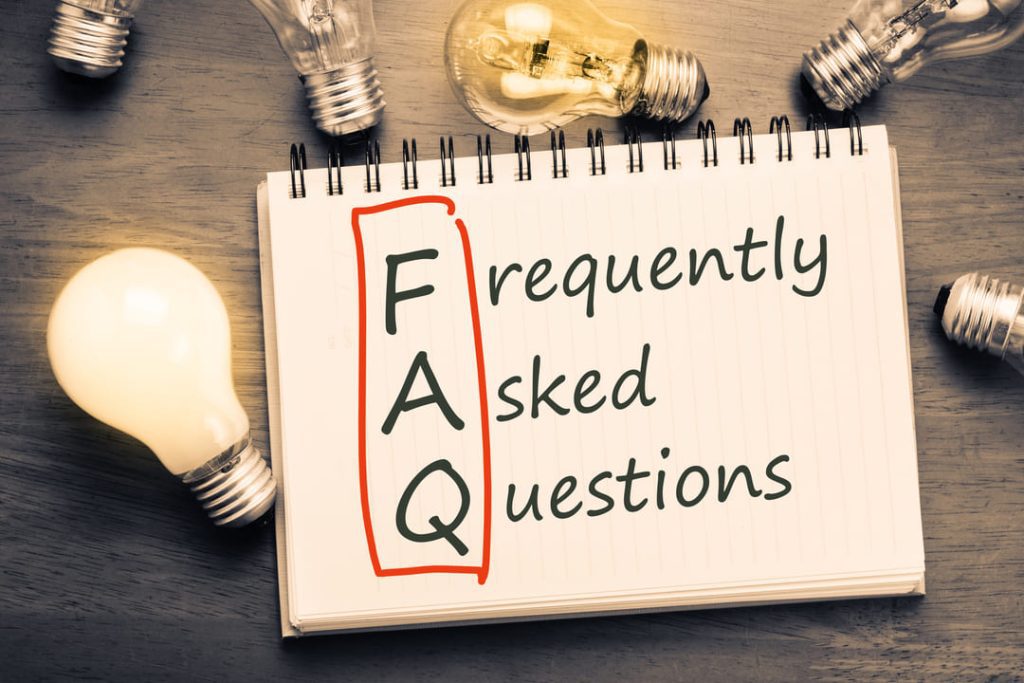Looking for Expert-Level VA Claim Answers?📱Call Us Now! 737-295-2226
You may have peripheral neuropathy if you have inconsistent tingling in your extremities and a stabbing or burning sensation in your hands or feet. But you aren’t alone; a 2022 study reports that approximately 2.4% — and up to 8% in some populations — of people in the U.S. suffer from the disorder.
If you can prove that your condition was caused (or worsened) by your military service, you may qualify for a VA disability rating for neuropathy in feet or hands.
In this post, we’ll break down how the VA rates neuropathy, answer common questions and examine how to prove service connection to get a VA rating for neuropathy. Let’s begin.
Table of Contents

Summary of Key Points
- Peripheral neuropathy is a condition that often causes numbness, tingling, and pain in the hands and feet.
- VA ratings for neuropathy are 10%, 20%, 30%, or 40%, depending on the severity of your symptoms and the limbs affected.
- Neuropathy sometimes impacts veterans, particularly those exposed to Agent Orange.
- Peripheral neuropathy may be deemed a presumptive disorder for veterans who were exposed to Agent Orange during their military service.
What is Peripheral Neuropathy?
Peripheral neuropathy involves damaged nerves — outside the brain and spinal cord — called “peripheral nerves.” There are different types of peripheral neuropathy; for example, diabetic neuropathy (i.e., a nerve condition caused by diabetes) results from high blood sugar levels that can damage the nerves in the hands, feet, arms, and legs.
Although weakness, pain, and tingling associated with peripheral neuropathy commonly affect the hands and feet, the condition can impact other body areas, including the urinary and digestive systems.
Types of Neuropathy in Hands and Feet
Two types of neuropathies include:
- Mononeuropathy – damage to a single peripheral nerve; this type of neuropathy is typically caused by an injury, continual repetitive movements (e.g., carpal tunnel syndrome), or prolonged pressure on the nerve. Carpal tunnel syndrome causes pain, numbness, and tingling on the side of the hand and thumb. If you are diagnosed with this type of neuropathy you may be eligible for a VA rating for nerve damage in your hand.
- Polyneuropathy – the most common type of peripheral neuropathy caused by damage to multiple peripheral nerves. This type of neuropathy has a wide range of causes, including exposure to toxins (e.g., toxins from volatile compounds like Agent Orange).
Neuropathy Symptoms
Symptoms of peripheral neuropathy depend on many factors, such as which nerves are affected and where the neuropathy is located in the body (i.e., feet or hands vs other areas such as the digestive tract). Common symptoms of neuropathy in the hands and feet include:
- Numbness, tingling, or prickling in your feet or hands that may spread to your arms and legs
- A high level of sensitivity to touch
- Pain resulting from everyday activities (e.g., putting weight on your feet or having a blanket touch them)
- Muscle weakness
- Falling or lack of coordination from muscle weakness in the feet or legs
- A false sensation of wearing gloves or socks
Agent Orange and Neuropathy
Peripheral neuropathy can occur among veterans who have been exposed to the herbicide Agent Orange.
What’s the connection between Agent Orange and neuropathy?
A 2022 study shows that the toxic component of Agent Orange has been linked with various health problems, including diabetes and peripheral neuropathy of the hands and feet. Although peripheral neuropathy and other disorders caused by Agent Orange can present long-term health challenges, the good news is that you may be able to qualify for a VA disability rating if you’ve had exposure during your military service.
VA Presumptive Rating for Peripheral Neuropathy
On September 6, 2013, the VA finalized federal regulation, 38 CFR 3.309(e), which presumed a link between herbicide exposure during military service. This presumptive link resulted in the VA eliminating the requirement that peripheral neuropathy must appear within weeks or months after service-connected toxin exposure.
If you served in an area where Agent Orange was sprayed (e.g., Vietnam, the Korean demilitarized zone, or another area where the chemical was used), you may be eligible for an Agent Orange Registry Health Exam at no cost.
VA Rating for Neuropathy in Hands and Feet
VA ratings for neuropathy are 10%, 20%, 30%, or 40%, depending on the severity of your symptoms and the limbs affected. If you suffer from symptoms of peripheral neuropathy of the hands and feet, the VA will rate your disability according to the severity of your symptoms. The table below indicates how the VA rates for peripheral neuropathy symptoms.
Neuropathy VA Disability Rating Chart
| Symptoms | VA Rating |
| Mild paralysis of the nerve, mild pain, tingling, numbness, minor sensory loss, or slight movement impairment of the hands or feet | 10% |
| Moderate nerve paralysis, moderate pain, tingling, and numbness, noticeable impairment of foot or toe sensation, and limited foot or toe mobility | 20% |
| Severe, partial nerve paralysis, pain, tingling, and numbness, severe sensory impairment, significant movement loss | 30% |
| Severe incomplete paralysis, inability to move your foot at the ankle, inability to bend your foot upwards (foot drop), all toes drooping, substantial sensory loss over foot, toes, or hands | 40% |
Peripheral Neuropathy VA Rating Factors
Several factors can influence your neuropathy rating, including:
- Peripheral neuropathy is rated according to which nerves are affected, the location and severity of symptoms, and how they impact your daily functioning.
- A separate rating may be assigned if you have symptoms that impact more than one limb. You can use the VACI VA disability rating calculator to determine your total VA compensation when you have this type of “combined VA rating.”
- A maximum rating of 40% can be assigned for each extremity (i.e., hand or foot) impacted by peripheral neuropathy.
- If you’ve been diagnosed with service-connected diabetes mellitus, shown to cause your peripheral neuropathy, you may qualify for a combined VA rating, even if your neuropathy wasn’t proven service-connected.
- It’s typical for secondary peripheral neuropathy of the hands and feet to be VA-rated between 10% and 40%, with the exact rating determined by the severity of symptoms and the specific nerves affected.
- The location of your symptoms may influence your VA rating. For example, dominant hand numbness can be rated higher than non-dominant hand symptoms.
Providing Supporting Evidence
Evidence to support your claim includes service records, diagnostic tests, and medical record documentation, such as:
- Your current medical diagnosis conducted by a licensed healthcare provider
- A thorough record of peripheral neuropathy treatments you’ve received (e.g., medications, physical therapy, etc.)
- Neurological examination reports conducted by a medical expert, such as a neurologist
- Healthcare provider statements (e.g., regarding the impact of your peripheral neuropathy on your ability to work or function in daily life)
- A Neuropathy Impairment Score (a test that measures the severity of muscle weakness, sensation loss, and functioning of the limbs).
- Nerve conduction studies (measures electrical signals in the nerves)
- Electromyography (i.e., a diagnostic test that measures electrical activity in the muscles)
- Service records that show your potential exposure to toxins such as Agent Orange
Secondary Service Connection
Neuropathy of the hands or feet may also be secondary to other service-connected primary conditions, including:
- Diabetes
- Orthopedic injuries (e.g., back injuries)
- Certain types of cancer (e.g., multiple myeloma or lung cancer)
- Cancer treatment (e.g., chemotherapy or other medication)
Diabetes is one of the most common conditions associated with peripheral neuropathy of the hands or feet.
A 2023 study reported, “Relatively high levels of Agent Orange exposure increased risk of developing peripheral neuropathy either alone or as a co-factor complication of diabetes mellitus.”
A nexus is a proven connection between your military service and your current medical condition. If you have a service-connected medical condition, such as diabetes, that causes a non-service-connected disability—such as peripheral neuropathy, without a nexus — you may receive a secondary service connection rating.
Filing a VA Claim
You can file your peripheral neuropathy disability claim as soon as you receive your medical documentation. You can strengthen your claim by submitting the following items:
- Service records relevant to the case
- Relevant medical evidence (e.g., a current medical diagnosis and diagnostic test results)
- Nexus letters or IMOs (which are frequently the missing links in VA claims that are denied)
Your claim can be filed online or fax or mail your submission. Another option is to deliver it in person to your local VA office. Claimants who submit their claim by fax, mail, or in person will need to complete VA Form 21-526EZ.

FAQs: Frequently Asked Questions
Is there a VA rating for numbness and tingling?
There is no specific VA rating for numbness and tingling. However, veterans can be rated for the underlying condition causing numbness and tingling, such as peripheral neuropathy.
Is nerve damage in my hands and feet a VA disability?
The VA considers peripheral neuropathy, a condition involving nerve damage in the hands and feet, a disability that can qualify for a VA rating from 10% to 40%. The disability rating depends on the severity of symptoms, which nerves are impacted, how severely the nerve damage impacts the veteran’s ability to work and function in daily life, and other factors.
What is the VA rating for neuropathy in the hands and feet?
A veteran with peripheral neuropathy can get rated at 10%, 20%, 30%, or 40% when the condition affects one extremity (i.e., hand or foot).
How does the VA rate neuropathy?
The VA rates neuropathy based on several factors such as the underlying cause or the condition that is most closely related, the nerve that’s impacted, and the severity of symptoms.
Can Agent Orange cause neuropathy in my hands and feet later in life?
Peripheral neuropathy can occur any time after Agent Orange exposure. When peripheral neuropathy manifests to a degree of 10% disability within a year of Agent Orange exposure, it is considered a presumptive condition. However, if symptoms begin after a year of exposure, the veteran can still seek a rating if they establish a connection to their military service.
Is it possible for a veteran to receive a peripheral neuropathy VA rating higher than 40%?
If peripheral neuropathy causes severe functional impairment, a veteran may receive a VA rating higher than 40%. One example is when a veteran experiences severe peripheral neuropathy in both hands; this may result in a 30% rating per hand and a total 60% rating.
Is neuritis in the hands the same as neuropathy?
No, neuritis is a nerve inflammation that may flare up and often resolves on its own; neuropathy is a chronic (i.e., long-term) condition that often involves permanent nerve damage.
Want Expert-Level VA Disability Claim Help? WE GOT YOUR SIX!

- VA Claims Insider is the #1 most trusted name in VA disability claims.
- Work directly with a VA claims coach who can guide you to VA claim victory.
- 25,000+ disabled veterans served in our membership programs since 2016.
- 30% average rating increase for veterans who complete our #1 rated Elite program.
- 4.7/5.0 average rating out of 5,500+ total reviews; over 4,500 5-star reviews.

Sherry Christiansen
Sherry Christiansen is a professional Medical Writer with a clinical mental health background. Over the last decade, she has written health and wellness articles for organizations like Medical News Today, Verywell Health, and Healthline. In 2013, she also helped launch an educational website for the first Alzheimer’s prevention clinic in the country at Weill Cornell Medical Center – NewYork-Presbyterian. As a spouse of a career military service member, Sherry is deeply passionate about supporting veterans. It is an honor for her to assist veterans in receiving the benefits they deserve after becoming ill or injured while serving our country.



